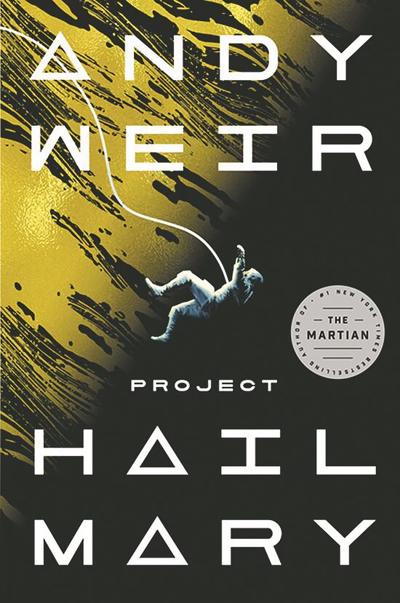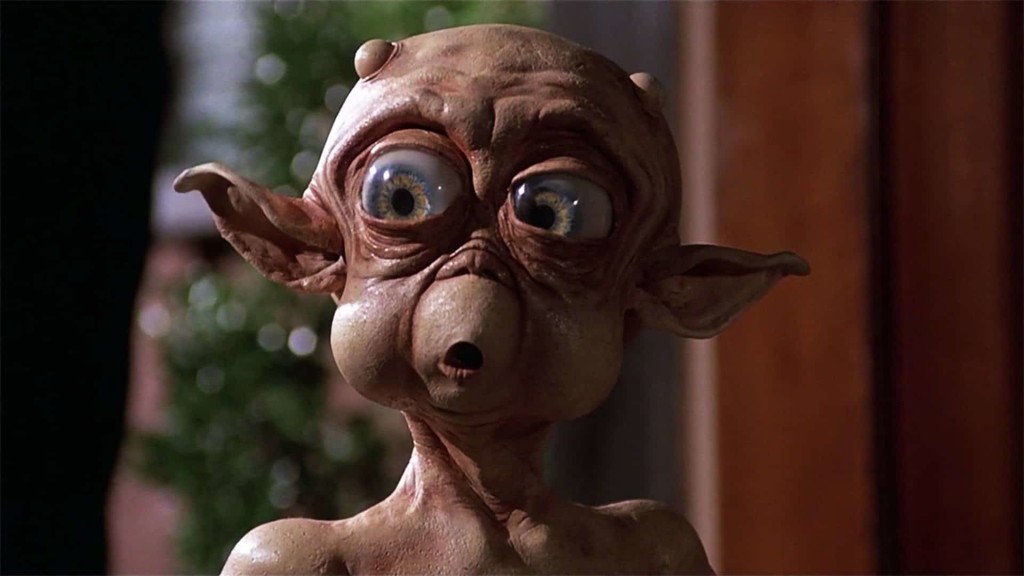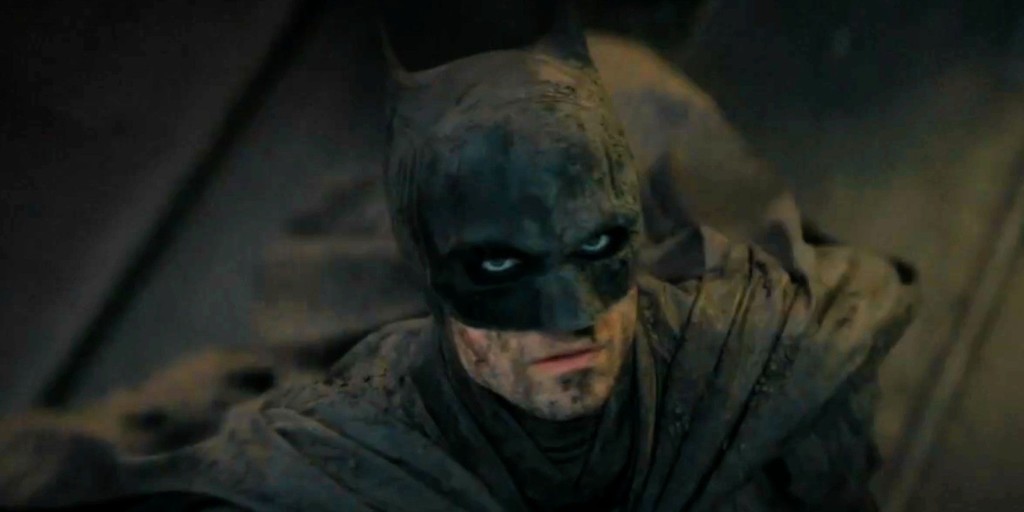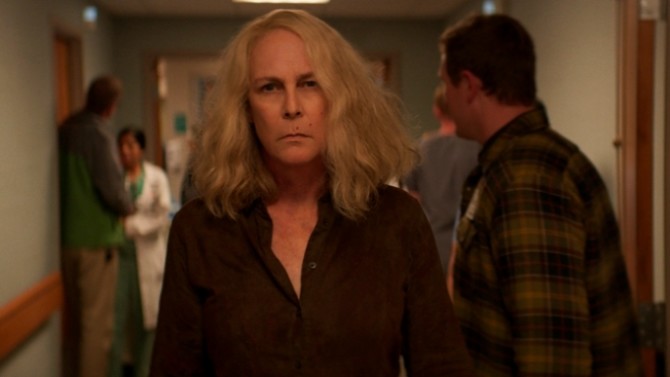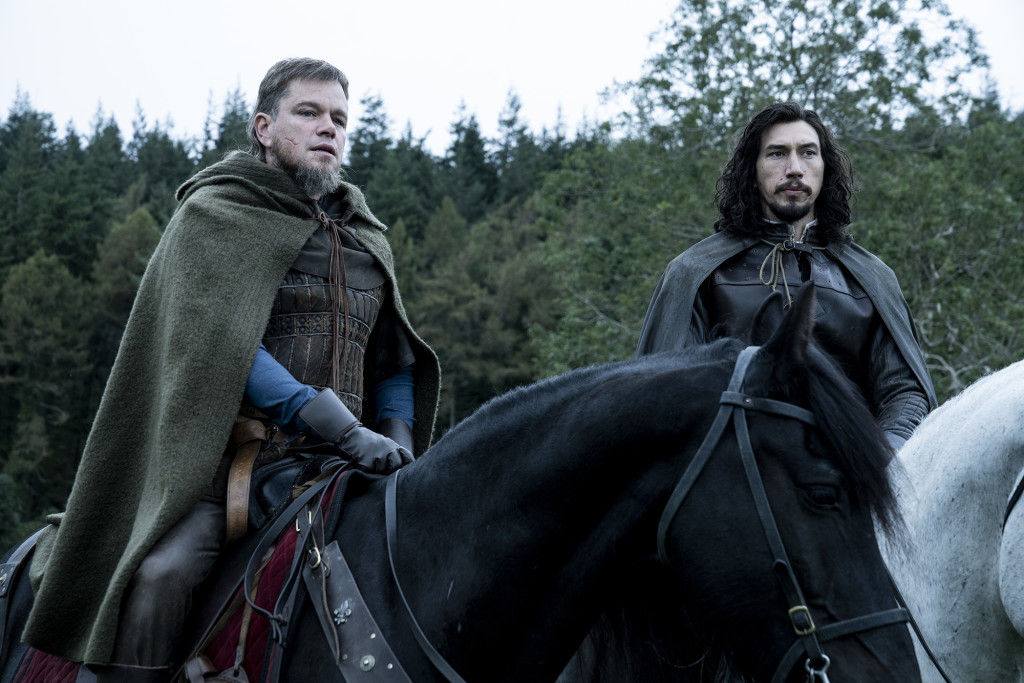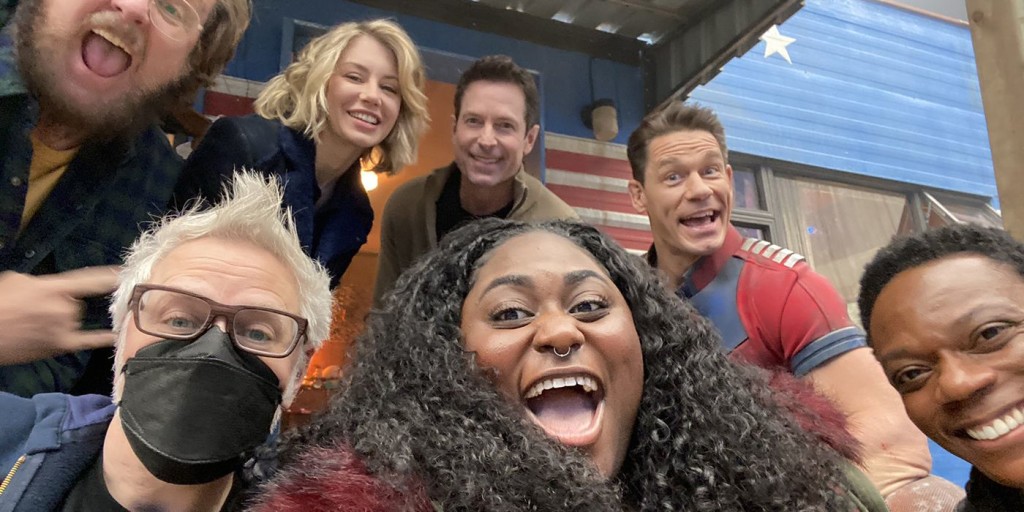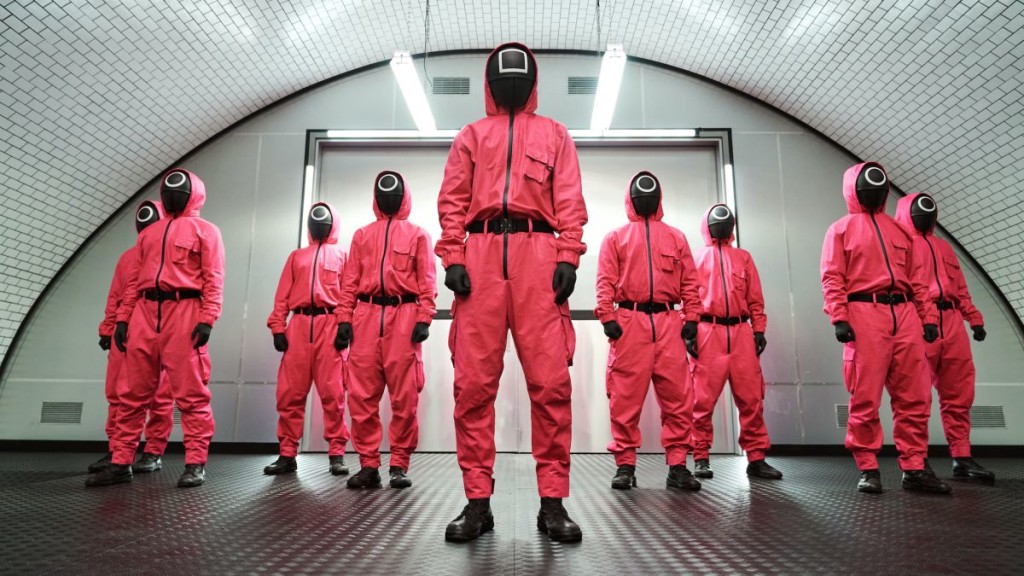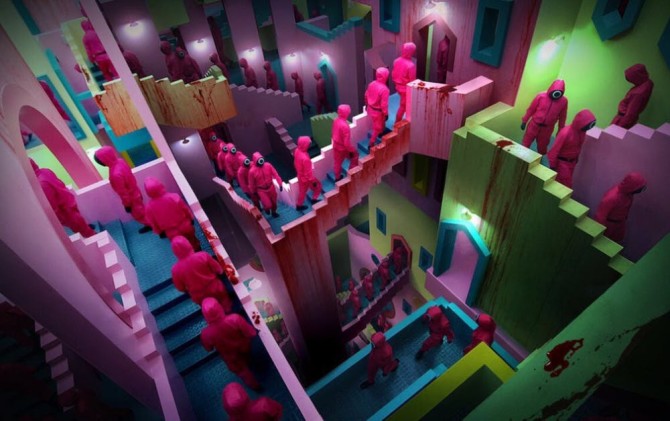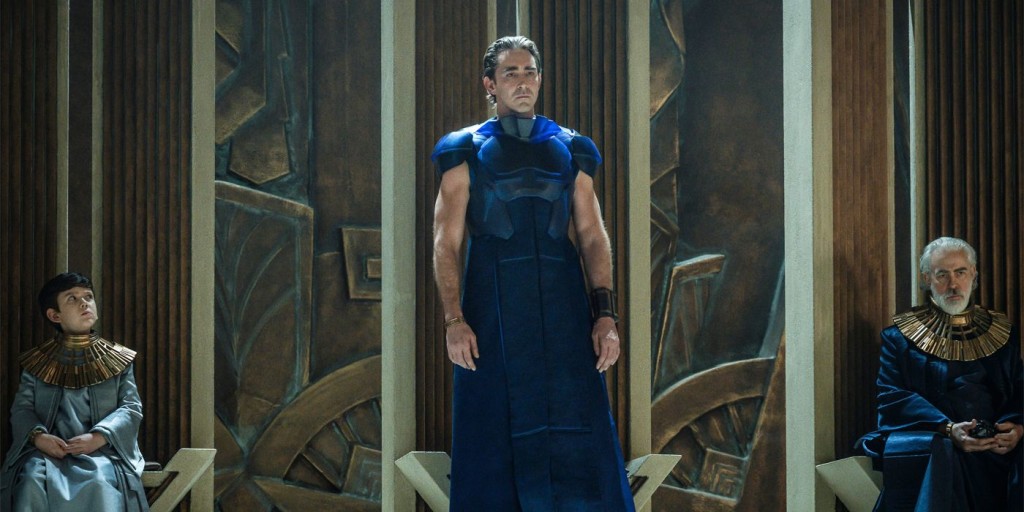Search Results for: F word
Sorry to say but there will not be a Scriptshadow post today (Tuesday). However, there is a big fat 6000 word newsletter in your inbox. You know how shocked everyone is that Squid Game was rejected for 10 years? Well in this newsletter, I discuss a project that took 30 YEARS to get made. I also talk about the season premiere of the amazingly written Succession. I give you a Kinetic update. I discuss the latest scripts to hit the market in October. I give you a sneaky good show no one knows about on Apple TV. I analyze all the latest trailers. And, finally, I review a really heartfelt feel-good holiday script.
If you want to read my newsletter, you have to sign up. So if you’re not on the mailing list, e-mail me at carsonreeves1@gmail.com with the subject line, “NEWSLETTER!” and I’ll send it to you.
p.s. For those of you who keep signing up but don’t receive the newsletter, try sending me another e-mail address. E-mailing programs are notoriously quirky and there may be several reasons why your e-mail address/server is rejecting the newsletter. One of which is your server is bad and needs to be spanked.
The writer of The Martian attempts to remake Interstellar… with an E.T. Twist!
Genre: Sci-Fi
Premise: A science teacher is chosen for a deep space mission that will save the earth from a virus that is slowly darkening the sun.
About: Andy Weir, who’s responsible for one of the biggest self-publishing success stories ever – The Martian – is back in his wheelhouse with his third book, which currently has a staggering 37,000 reviews on Amazon. The movie adaptation will star Ryan Gosling and be directed by Phil Lord and Christopher Miller. Drew Goddard, who adapted The Martian, will adapt this one as well.
Writer: Andy Weir
Details: 482 pages
From what I understand, Project Hail Mary was originally conceived as a space opera, like Star Wars. However, after writing 75,000 words of this space opera and thinking it was terrible, Weir abandoned the novel and went off to write Artemis instead (his second book). But he couldn’t get some of the ideas from Project Hail Mary out of his head so he went back and repurposed the story to be more like… well, the book that made him famous: The Martian. Let’s see what the results were.
Ryland Grace wakes up in a windowless techy white room. He has no idea how he got here. But he does notice there are two other people in the room with him and they’re both dead. He senses he was part of some sort of crew which means that he must be in space. Why is he in space? He doesn’t know that yet.
He starts exploring the multi-module ship and finds a science lab. He’s supposed to work on something scientific. But what? The book is set up to jump back in time as Ryland remembers the pieces of his past, which come sparingly. The first thing he remembers is that the scientists of the world realized that the sun was getting darker. And if this continued, in about 30 years, humanity would be extinct.
Uh oh.
Back on the ship, Ryland starts doing experiments and realizes that the stuff that’s darkening the sun is called astrophage. And boy is this stuff nasty. Because it’s not just darkening our sun. It’s darkening all of the nearby suns in our galaxy. That’s when Ryland realizes that he’s not in his solar system, he’s in a completely different solar system called Tau Ceti. He’s been sent here because Tau Ceti is the only star that isn’t darkening. And his team – aka, him – needs to figure out what it’s doing right.
While Ryland is trying to figure out how to conduct experiments on local astrophage, he sees another ship! But this isn’t Star Trek where you just call them up on your space Skype. This is an Andy Weir novel. Everything is realistic. There are no phones. So these two ships have to figure out how to communicate some other way.
After a long drawn out process, the other ship docs to his and Ryland meets the sole occupant of the other ship, a spider alien he names “Rocky.” Several long chapters are dedicated to the two species learning each others’ languages (again, this is an Andy Weir novel where everything is dealt with realistically) and Ryland learns that Rocky is here for the exact same reason he is. His planet discovered the same thing, that Tau Ceti is the only solar system that isn’t affected by astrophage.
(Spoilers) Long story short, astrophage was created here. And because it was created here, it has a natural predator that can kill it. Which means all these two have to do is pack up some of these predator particles and head back to their respective homes. However, when something goes wrong at the last second, Ryland will be tasked with either going home to save mankind or going back and saving his new friend.
One of the things I’m a big proponent of is figuring out what you bring to the table that nobody else does and then writing scripts that lean into that strength. Think about it. Why would we show up to see something that feels exactly like everything else we’ve seen? We seek out material, in written and produced form, that has a distinctive voice.
Weir’s voice is science. Literally NOBODY else is doing what he’s doing. Let me repeat that because it’s important. NOBODY ELSE IS DOING WHAT HE’S DOING. If you’re the only one who’s doing something, you are a commodity. The studios can’t go to JJ Abrams or Quentin Tarantino and say, “I want a movie like The Martian that is steeped in hardcore science.” They wouldn’t be able to do it. They can only go to Andy Weir.
So now I ask you – what can studios only get from you as a writer? What is your unique commodity?
But Weir’s talents don’t stop there. If he only gave you science, you’d be bored out of your mind. He’s created a unique ability to package science in a fun easy-to-read way. Part of it is that he knows he has to move the story along so he never dwells for too long on anything before jumping to the next plot beat. But, also, he has an insane love for science, which comes off in the way he writes.
That’s worth something, by the way. Readers can feel when a writer is passionate about what they’re writing. It often adds an extra level of energy to the story.
That doesn’t mean Weir doesn’t have weaknesses. He does. Project Hail Mary has a huge weakness. Weir wants to write a thriller. He wants to keep the pages moving. But he also has to explain all this backstory so you know why he’s doing this. And writing a thriller in first person with extensive backstory doesn’t make sense.
So Weir cheats. He creates this amnesia storyline whereby Ryland only remembers the past bit by bit, and each time he remembers, we cut back to the past to get that new piece of information. Conveniently, these pieces of the past come to him in perfect linear order, allowing him to tell a perfectly linear story from the past as he intercuts to the perfectly linear present.
It’s a sloppy device and it almost derails the story. I mean here’s a guy who can spend ten pages on the importance of why a door corner must be measured by the Pythagorean Theorem in space lest the entire ship blow up, yet the rules of amnesia just happen to align perfectly to the extent that each bit of remembered past matches up perfectly with the story’s structure.
I think the big question coming out of Hail Mary is, can this be adapted into a movie as good as The Martian? And the answer is I honestly have no idea. I suspected, after reading The Martian, that we’d be bored hanging out with Matt Damon in a single room through that entire second act but I was wrong. So I’m not going to write Project Mary off.
But the make or break part of Hail Mary is, without a doubt, going to be Rocky. It isn’t just creating Rocky that’s going to be difficult. It’ll be the tone. Because he kind of sounds like a slightly smarter version of E.T. But the focus here on genuine science would imply that they’d want Rocky to feel more realistic. And yet, the way he’s written, he’s like a spider-dog that communicates through singing. I’m just not sure how you make that work onscreen.
I’m getting some Jar-Jar Binks vibes – or, gasp, Mac and Me – where he could inadvertently come off as comical. If he works, the movie will work. If he doesn’t, Ryan Gosling is going to be memed to death for the rest of his life. I would go so far as to guess that they’re going to change this alien to something more human. I just don’t know how you make a spider dog with no eyes that sings work.
All in all, Project Hail Mary is a fun book. It reads like a movie. It’s got a lot of fun little twists and turns along the way. If you liked The Martian, I see no way you wouldn’t like this too. It does have some weaknesses but they never overwhelm its strengths.
[ ] What the hell did I just read?
[ ] wasn’t for me
[x] worth the read
[ ] impressive
[ ] genius
What I learned: I hear a lot of writers share stories similar to Weir’s experience on Project Hail Mary, where they start off writing something and, once they get deep into it, realize it sucks. When that happens, it can be very difficult for the writer to give up because now they have the sunk cost fallacy in play: You’ve already written so much of the story. Therefore, even if it sucks, you should still finish it. However, I think the better option is to do what Weir did. Understand that just because a novel or a script isn’t working, that doesn’t mean giving up on it now means giving up on it forever. What often happens when we get some distance from our failed stories is that we realize there are still some kernels in them that could be used to create a different better story. We can then extract those kernels and write a book like Project Hail Mary, which was pretty darn good. That’s a better option than spending years trying to make something work that’s inherently flawed.
The Batman, Halloween Kills, The Last Duel, and Peacemaker all come splashing down into the Mish-Mash Monday pool today!
People! This Thursday is the Halloween Horror Showdown deadline. If you have a horror script, make sure to enter it. It’s absolutely free and you can find out how to submit HERE. The winner will get a big Friday review next week. Don’t you dare miss out on this opportunity.
We had two major releases this weekend at the box office. The first was the Halloween sequel, Halloween Kills. That film finished with a surprising 50 million dollars at the box office, despite being available for free on the Peacock streaming service.
There’s been a lot of talk in the industry about how “simul-releases” doom a film’s box office, with the industry pointing to the simul-release of hopeful hit but ultimate dud, “The Suicide Squad” as an example. Meanwhile, movies like Shang-Chi and Venom, which only opened in theaters, do well. Throwing a wrench into that theory is that last week’s opening of Bond, which was a theaters-only release, did poorly.
The newest Halloween movie further throws that theory into flux, pulling in 50 million bucks for the weekend, which was only 5 million less than No Time To Die. To put that in perspective, “Die” cost 300 million to produce while “Kills” cost 20 million. Of course, Halloween Kills will not do anything close to No Time To Die’s international numbers. But it may actually end up turning a bigger profit than Bond, which reportedly needs to hit 800 million in revenue before it starts making money. And that’s a generous number. More realistically, it’s probably a billion.
Another layer to this drama is that Halloween Kills has a dreadfully awful screenplay. And I mean it’s REALLY bad. In retrospect, I probably should’ve given it a “what the hell did I just read?” Most people are confirming this as the film has a fast plummeting 39% Rotten Tomatoes score. But one of the most surefire bets at the box office is the direct sequel to a highly successful horror movie. And, look, it’s a movie called “Halloween Kills” coming out two weeks before Halloween. So people are going to go. I just hate when terrible screenplays are celebrated because it encourages the industry to remain lazy.
The other big release was Ridley Scott’s star-studded period piece, The Last Duel, which maybe should’ve been called The Last Time You’ll Ever See This In Theaters. There were a couple of issues with the project, the first being that period pieces haven’t done well recently, especially when the concept is small, like this one. Period pieces need that big hooky world to hang their hat on (Scott’s “Gladiator,” for example) and The Last Duel was a more personal story.
The bigger problem, though, was that the movie looked sad. And who wants to willingly be sad during a pandemic? It’s like, “Hey, Hollywood! I’m already sad! I don’t need you to make it worse.” I believe that when things are going badly in the world, people want happy movies (Shang-Chi). And when things are going well in the world, people are more open to sad movies (Titanic). The Last Duel was a big fat example of bad timing. I also think Adam Driver needs a new agent. He seems to be choosing projects solely based on the director without asking the obvious question of, “Is this a movie people actually want to see?” An actor of his caliber should not be in this many films that have bombed.
Two new big trailers hit the airwaves this weekend thanks to the DC Expo, the big one, of course, being The Batman. This movie looks DARK. And no, I’m not talking about the tone. I’m talking about the cinematography! I can barely see anything. I will say this about the movie. Batman is probably the trickiest property in Hollywood to direct at the moment because you’re coming off the most successful Batman films ever, which means you can’t copy them. However, if you go the opposite route and try to make Batman fun and playful, you look like you’re copying the Marvel format. So what do you do?
Matt Reeves’ solution was to one-down Christopher Nolan. Let’s not just go dark. Let’s go REALLY DARK. Based on how this movie looks, I’d say that was the right decision because the movie doesn’t look like anything else out there. That’s the hardest thing to do in the most over-saturated genre in history – come up with a film that doesn’t look like any other superhero film out there. Matt Reeves has done that.
The only thing I remain skeptical about is Robert Pattinson. It makes me nervous that he barely says anything in the trailer. And when he does say something, it’s usually voice over. That indicates that the director doesn’t love his star’s performance and he’s trying to hide it. I noticed the same thing in Tenet. Pattinson has very few lines in that movie and you get the sense that he, originally, had a much bigger role, which indicates that a large swath of his performance was left on the cutting room floor.
Then again, I may be overthinking this. The trailer could’ve easily been cut that way on purpose. And, look, I’m seeing more good in this trailer than bad. It looks like a cool Batman movie. The biggest thing of all is that it feels fresh. That’s all audiences want. They want something familiar but not too familiar. I really hope this is a good movie!
DC’s other big trailer release was James Gunn’s and John Cena’s “Peacemaker” show for HBO Max. This was quite the, um, trailer. I’m trying to think of a way to be respectful here because I like John Cena a lot. Let’s put it this way. James Gunn is an acquired taste. I think we all know that by now. And I would call this Peacemaker show the most James Gunny thing ever made. So if you love James Gunn, you’re going to love Peacemaker. If you’re like me, however, and approach every James Gunn project on the fence, willing to go one way or the other depending on the execution, you’re probably going to hate this. It just looks… juvenile is the best word to describe it.
It doesn’t help that nobody saw The Suicide Squad. They were expecting that film to be a big hit and for Peacemaker to be a breakout character. But that’s not what happened. You could make the argument that not a single character broke out from that movie. But, by that point, this show was already in the can so what can they do other than promote it like heck and pretend that everybody loved the film?
Next weekend we FINALLY get Dune. This will be a pivotal release for Denis Villeneuve. His big-budget Blade Runner film proved too “adult” for audiences and Dune looks to have gone down a similar path. They did a good job hedging their bets, however, with Chalamat and Zendaya, to pull in the younger crowd. But will that crowd be willing to sit through a 3 hour meditative piece on interplanetary politics? Boy oh boy am I curious to find out.
Now finish up those horror scripts and get them in by Thursday! No more procrastinating!
The story behind Squid Game is almost as compelling as the story in it.
Squid Game is a sensation.
Ted Sarandos, Netflix’s content guy, says that the show is on track to become the most watched piece of entertainment in Netflix’s history.
Full disclosure, I watched the first episode and a half of Squid Game and I didn’t think it was very good. Korean cinema can be kind of goofy, in my opinion, which can sometimes take me out of the story.
There was an early scene, for example, where a business man plays a weird game with our protagonist where he drops an envelope on the floor and if it doesn’t land just right, the other guy gets to hit him. The protagonist proceeds to lose 60 times in a row and the other guy just keeps hitting him afterwards. Quite frankly, I thought it was one of the dumbest scenes I’d ever seen. It yanked me right out of the show and I couldn’t get back into it.
There were some other issues I had as well. Why do the people get to vote to stop the game? That’s lame. It’s so much better if they’re forced to play it. I gave up watching after the people were allowed to quit.
BUT. That does not change the fact that Squid Game is a runaway success. I’ve seen several of you praising it in the comments. And the internet loves it (I recently read that the squid game hash tag has been shared 22 billion times on TikTok, which I guess means everyone in the world has used the hashtag 3 times each). I texted my brother (who has zero interest in Hollywood) to see what he thought and he said, “I haven’t seen it but the world is screaming at me to watch this, so I will.” And that’s the current pull of the show. Everybody knows about it. Everybody is going to check it out if they haven’t already.
But, as was brought to the world’s attention this week, the creator, Hwang Dong-Hyuk, has been pitching the show to Hollywood for ten years and they all told him it wouldn’t work. He was so broke at one point, he had to sell the very laptop he was writing the script on!
So what happened here? Writers love a good “the studios were wrong!” story. But were they wrong? Was this a guaranteed hit that the studios missed?
Let’s dig into that question.
One of the things I’ve found is that if you’re an unknown writer and you have a really unique vision – your story is going to look different than anything else out there – it’s hard to convey that on the page. I remember when Zach Braff was trying to get Garden State made and nobody gave him the time of day because the script was so bad. However, after he made a strong visually unique film, everybody was surprised as to how Garden State could’ve been rejected. Well, it was rejected because there was no way to show everyone what the movie would look like using just words.
Which is clearly what’s happened here. Squid Game is all about the look. The dudes with the weird masks and these ridiculous colorful game sets – the second you see that on Netflix’s home page, you’re intrigued. And if you’re intrigued, you’re going to check it out.
But let’s not pretend like it an obvious hit and everyone who passed on it was dumb. There wasn’t any way to know the show was going to look the way it does. If this had been a graphic novel first, I have no doubt that it would’ve been optioned and made into a movie (or a show). But if he was just pitching this as a script, of course people are going to say no. It’s big, it’s expensive, it’s weird, and the writer is unknown. That’s like a quadro handicap on your screenplay.
The reason I bring this up is because, if you’re a writer trying to break in, having some groundbreaking visual palette for your movie isn’t going to matter one iota in script form. That’s for the directing side of things. It’s why directors will shoot short films as proof-of-concept. But nobody’s going to be able to see that in a screenplay.
Which is why you should be conceiving of ideas that work first ON THE PAGE and then ON THE SCREEN. Not ideas that jump straight to the “on the screen” part. That’s a little confusing so let me parse it out for you. A Quiet Place is a script that works on the page. It’s got clear high-concept rules (you can’t make a sound or you’re dead) and a highly marketable story (horror film, monsters that hunt you, family that’s trying to survive). Cloud Atlas is a script that does not work on the page. You could argue it doesn’t work on screen either. But it definitely looks beautiful. And that’s the lesson here. If your script is highly dependent on how it looks, you shouldn’t be writing that as an unknown screenwriter. Nobody’s going to be able to see what you see (unless you’re a writer-director and shoot a proof-of-concept short).
Where we venture into the gray zone is when we look at Squid Game’s concept. Squid Game has a very high concept pitch. It’s a bunch of poor people playing deadly children’s games to win millions of dollars. Shades of The Running Man and The Hunger Games. To be clear, that *does* work on the page. So I’m not sure why that didn’t sway Hollywood more than it did other than maybe the writer was originally pitching Squid Game as a movie and it didn’t read well as a feature, combined with the fact that he was an unknown, which always makes things more difficult.
Let’s also not forget that, as is the case with every giant hit, there’s a fortuitous aspect to it. Steven Spielberg is Steven Spielberg in large part because when he came out with Jaws, the world was experiencing an overwhelming number of shark attacks. When Hwang Dong-Hyuk first pitched Squid Game ten years ago, we weren’t in the middle of a pandemic that was taxing everyone’s bank accounts. The second the pandemic came along and everyone started losing their jobs, Netflix greenlit Squid Game.
There are a few final writing lessons I can take away from Squid Game. The first is that screenwriting is a marathon. It isn’t a sprint. I can count the number of people who have “made it” within five years of starting screenwriting on two hands. And, in almost all of those cases, it was because that person had a family member in the business. Ten years, as scary as that sounds, is a realistic number when it comes to screenwriting success. That doesn’t mean you have to starve for ten years. You can have a job and pursue screenwriting in the meantime. But try to put 2-3 hours a day into it if you really want to get good.
Next up, high concept remains your best bet for success. Some people may look at Squid Game and say, “Wow, Hollywood is effed up. They rejected this awesome show for ten years.” But another way to look at it is, kudos to Dong-Hyuk for coming up with such a high concept that it could be pitched long enough whereby it never got old. A lot of writers come up with ‘of-the-moment’ ideas and, as soon as the moment is over, their scripts are worthless. A big high concept timeless idea is something you can pitch for years no matter how many times you get rejected.
Finally, write about what’s affecting you RIGHT NOW. That tends to create the most authentic exploration of character. Dong-Hyuk was dirt poor ten years ago. He was just trying to survive. So he came up with an idea that explored the depths a person would go to to become financially stable. I don’t think Dong-Hyuk would be able to write Squid Game today. He’s rich now. He doesn’t feel that same desperation. That same destitution. As much as I love concept, you ultimately have to write characters that the average person connects with. And this is a big part of the equation for doing that. Write characters that are versions of you and what you’re going through right now in your life.
I’m curious what conclusions you’ve drawn from Squid Game’s success. While you write out those comments, maybe, just maybe, I’ll give this show a second chance. :)
Star Trek is Star Wars for geeks. Guardians of the Galaxy is Star Wars for the cool kids. Is Foundation Star Wars for adults?
Genre: Sci-Fi/1 Hour TV Drama
Premise: When the galaxy’s premiere mathematician concludes, via a complex equation only he understands, that it is inevitable the Empire will fall, the leader of the galaxy exiles him to a remote planet and goes about trying to prevent his prediction from coming true.
About: Based on one of the most famous sci-fi novels of all time, the expensive ‘Foundation’ is Apple TV’s official entry into the tentpole TV space (unless you count “See”). Foundation is a major influence on many of the sci-fi works we know today, including Star Wars. George Lucas borrowed some of the Star Wars terminology straight from Foundation, most notably, the ‘Empire,’ but also his obsession with clones. The series is being led by love-him-or-hate-him screenwriter, David S. Goyer (The Dark Knight, Man of Steel), who calls the Foundation show the biggest writing challenge of his life, as the narrative will span thousands of years.
Creators: Josh Friedman and David S. Goyer (original novels by Isaac Asimov)
Details: Pilot episode was about 65 minutes
The only reason I bought the Apple TV+ service was to see this show. Then I found out it wasn’t coming out for another year and a half! So I waited and I waited and I waited and then I waited some more, and FINALLY I got my Foundation.
Meanwhile, I have no idea if anybody else besides me is interested in this show. I think it looks amazing. Star Wars for adults if it nails the execution. Yet I haven’t heard anyone else mention Foundation, which makes me wonder just how many Apple TV subscribers there really are. Or maybe it’s just not as buzzy of a show as I think it is. Let’s find out together.
Foundation is set in the far off future after the entire galaxy has been populated. This galaxy is run by a clone emperor named Brother Day. Brother Day keeps cloning himself so he can rule forever. He actually rules alongside his older clone, who was once in his position, and a younger clone, who will eventually take his position.
Off on a remote planet we meet a brilliant young mathematician named Gaal Dornick. Gaal has been called to the central planet to work alongside the most accomplished mathematician in history, Hari Seldon. After a light-years long flight, she arrives at the capital city, meets Hari, who instantly tells her, “Oh yeah, um, I forgot to tell you. They’re going to arrest you tomorrow.”
Gaal is like, “Excuse me???” Hari explains that in his latest equation, he has predicted the fall of the Empire. It is inevitable and will last millennia. He knows Brother Day won’t like that, so he’ll arrest Hari and anyone working with him. Sure enough, the next day, Gaal is arrested. She is told by the Empire to look at the equation and, regardless of it is right or not, to say it is wrong. That way the entire galaxy doesn’t freak out.
But in a courtroom battle, Gaal confirms Hari’s findings. Brother Day is brother pissed. Hours later, the giant space elevator that doubles as a landing port for all ships coming to the planet, is blown up by two terrorists, and falls onto the planet, killing upwards of 100 million people, seemingly confirming Hari’s prediction.
At the last second, Brother Day has a change of heart and exiles both Gaal and Hari to a remote planet on the outskirts of the galaxy. They are to work on a solution to the Empire’s demise. When they find one, they can come back. And that’s the end of the pilot episode.
One of the issues with tackling stories that have an enormous scope is getting lost in the scope. The writing becomes more about the world building and “showing off” than it does telling a story that actually keeps people entertained.
The first 30 minutes of Foundation operates this way. It’s powerful people in big rooms saying random things about situations we only barely understand. There’s no form to any of it. And, therefore, no function either. It is 30 straight minutes of ‘who the hell cares?’
But then the court room scene comes. This is the scene where Gaal will either lie and say that Hari’s conclusion was incorrect, in which case she’ll go free and live a normal life, or she tells the truth, which is that Hari is right, in which case she’ll likely be killed.
You’ve finally written a compelling scenario. A courtroom scene has form. I understand a courtroom scene. I didn’t understand 1000 people standing in front of Brother Day as he babbled on about the warring factions of the Fifth Segmentia of the Clororo District. That scene has nothing in it that’s dramatically relevant.
A courtroom scene, meanwhile, is not only something I’m familiar with (and therefore I understand what’s happening), but something with consequences. The stakes of the scene are someone’s death. THAT’S how you invest readers. Always remember to create scenarios that a) people understand and b) have consequences.
Another scene that I understood was two terrorists blowing up a significant structure. Terrorism for a cause is something we’ve seen in our lifetimes. That’s why I’m familiar with and understand it. Again, you have to place us inside scenarios that we understand in order for them to have a dramatic effect.
How am I supposed to understand, or care, about two planetary representatives staring at a wall of art? Staring at a painting on a wall while saying random things to each other has no dramatic consequences whatsoever. It’s a banal empty scene. And yet that was typical of the scenes early on in the pilot.
I understand getting exiled to a planet. That makes sense to me. I’ve seen that before. I know that’s happened to leaders throughout time, like Napoleon. So it was a scenario, again, I could participate in.
In setting up this world for the audience, Goyer got lost in the details and forgot to create dramatic scenarios that actually entertained people AS WELL AS informed them. You can’t make that mistake with a pilot. People just don’t have the time in 2021. Do you know how many other shows there are out there? The list is endless. You can’t do anything that makes someone think, even for a second, “I wonder what else is on?” I seriously considered ditching this show 30 minutes in. The only reason I kept watching was because I was going to review it. But I’m sure others, after watching the opening, said, “What is this stuffy boring sci-fi bullshit?”
The courtroom scene and the space elevator destruction ended up saving the pilot but the weak first half sets up some concerning questions about where the series is headed. Is it a good idea to create a show without a single happy character? Without any humor at all? A show needs balance. Or at least a small variation in tone. The tone here is 5th gear super serious at all times. Has there ever been a show like that that’s succeeded? I’m asking honestly.
This brings me back to Friday’s Amateur Showdown winner where I had a similar problem with the script. The family was really serious. The script took a really long time to get going. I think writers continue to use the excuse of, “Well, I had to set up the characters and the story” to justify it being boring.
Don’t do that. Do both. Set up the characters and story WHILE you’re entertaining the audience. It doesn’t have to be Sophie’s choice.
Star Wars is one of the best examples of this. Darth Vader isn’t Brother Day when we meet him, casually strutting around his palace, looking concerned about the state of affairs. He’s too busy relentlessly pursuing the people who stole the Death Star plans. He’s active. We’re meeting a character but we’re also BEING ENTERTAINED while doing so. I honestly believe that the only reason writers don’t do both of these things at the same time is out of laziness. It’s easier to set up rather than set up and entertain.
Despite me sounding like I didn’t like Foundation, I’m still hopeful. I really want this series to work because I think a Star Wars for adults would be awesome. The Mandalorian has shown me that it’s more interested in satisfying the younger fans than the older ones. So it would be cool if I had something targeted towards my demo.
Is this show on anyone’s radar? Am I the only one watching it? Do any of you watch anything on Apple TV? I’m curious because I never hear anyone talk about Apple other than Ted Lasso so I’m wondering if anyone even knows it exists.
[ ] What the hell did I just watch?
[ ] wasn’t for me
[x] worth the stream
[ ] impressive
[ ] genius
What I learned: Offer foreknowledge to the reader to create a more compelling scene. There’s a scene in the first half of Foundation where Brother Day visits an older artist (or maybe he’s an art curator – it’s unclear) and starts chatting with him. We gradually get the sense that he’s unhappy with this guy for something that happened recently, although it’s unclear what that something is. Finally, at the end of the conversation, he shoots and kills the man. The scene is a dud because we were given no prior information on who this man was. We had no idea Brother Day was even coming to see him until the scene started. In other words, we didn’t have nearly enough information to actively participate in the scene. We needed the writer to give us more info so that when Brother Day walked into that room, we knew he suspected this guy of something and we knew that he was thinking of killing him. That way, we would’ve felt suspense as well as fear. But when you don’t tell us anything ahead of time, we’re lost in the scene, especially this early on when we don’t know any of the characters or what they’re up to. It was a miscalculation and one of the reasons the first 30 minutes felt like stuffy setup rather than an entertaining show.


